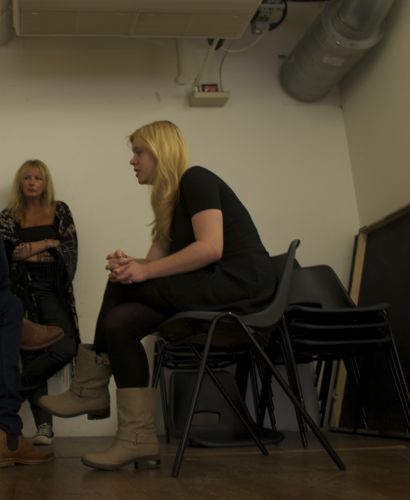
by Bel | Dec 28, 2015 | acting classes, acting classes london, audition classes, audition doctor, auditions, classes for acting, tilly blackwood
 At Audition Doctor, Tilly always encourages students to spend a considerable amount of time in search of the speech that they would like to work on.
At Audition Doctor, Tilly always encourages students to spend a considerable amount of time in search of the speech that they would like to work on.
David Haig recently was interviewed in Whatsonstage playing King George III: “It’s incredibly rare to find a role that you feel is in your blood stream. When I did George III, I felt that it fitted like a glove and that I could really express what I wanted to as an actor,” he explains. “I put so much of myself in it and it seemed to work well and therefore it came together chemically, I don’t think I’ll ever meet a part like that again or will feel the same about acting again,” he says. “So I have a slightly different attitude to acting than I did three years ago because of that.”
Picking the right role is paramount as students find that certain parts allow them to access a vulnerability or progress through an emotional trajectory that showcases their abilities to the utmost.
While most of Audition Doctor’s students are professional actors and those applying to drama school, some are untrained actors seeking informal training sessions.
Dee Cannon, who taught at RADA, wrote an article in The Guardian about building characters and the acting industry as a whole:
“Actors may believe that they can do without formal training…Natural ability will get you so far, but it’s the trained actors who know what they’re doing and how they’re doing it and can produce that emotion take after take. Talent may be enough to get by on screen and TV, but with a few notable exceptions such as Kelly Reilly, the untrained actor often fares badly on stage. The performances that most often thrill us are those where instinct and technique are both in perfect balance but also opposition, and flamboyance and inner life collide head on, transforming feeling into thought and words. When this mixture of abandon and control ignites, what happens is as mysterious as alchemy; the theatre crackles; it leaves the spectator reeling.”
While Audition Doctor provides help to many actors, Tilly always encourages those who have not formally trained to do so. Audition Doctor sessions give students a helpful taster of the kind of work they will be doing at drama school.
Cannon went onto say: “To fully transform into a character, to be truthfully and emotionally connected needs hard work, technique, good direction. But the audience should see none of this. They should see nothing other than the fully realised three-dimensional character right in the truth of the moment.”
Audition Doctor is unique in that Tilly offers the space and guidance to help students realise this. The blending of instinct, technique and emotional perspicacity that students come to master is something that comes out of the sessions and why students never fail to recommend Audition Doctor highly enough.

by Bel | Dec 16, 2015 | acting classes, acting classes london, audition classes, audition doctor, auditions, classes for acting, tilly blackwood
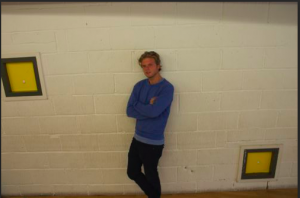 Phillip Seymour Hoffman often spoke about the level of commitment and dedication acting required: “I think that the amount of concentration — sometimes the amount of personal exploration — it takes to do something well, can be not pleasant … like hard work is. That doesn’t mean that you don’t want to do it, or that you don’t love it, or that it’s not ultimately satisfying. You know that old cliché; … nothing’s worth it unless it’s [a] hard to do kind of thing. I wear that on my sleeve sometimes when I’m working. … There’s always something about that job that’s exhausting, and that’s what’s exhausting about acting, is the level concentration over very long period of time.”
Phillip Seymour Hoffman often spoke about the level of commitment and dedication acting required: “I think that the amount of concentration — sometimes the amount of personal exploration — it takes to do something well, can be not pleasant … like hard work is. That doesn’t mean that you don’t want to do it, or that you don’t love it, or that it’s not ultimately satisfying. You know that old cliché; … nothing’s worth it unless it’s [a] hard to do kind of thing. I wear that on my sleeve sometimes when I’m working. … There’s always something about that job that’s exhausting, and that’s what’s exhausting about acting, is the level concentration over very long period of time.”
Many students, both professional actors and drama school applicants, come to Audition Doctor because sessions give them the time and space to focus on their craft. Sessions are hard work as the effort and creativity required for students to create three-dimensional characters that are unique and believable is significant.
Past and present students attest that the work in Audition Doctor sessions is rigorous, however, most commit to regular sessions. The more sessions they attend, the more students become acutely aware of when they are hitting the emotional truth of the scene and when they are merely skirting around it. Consequently, they become more astute when judging the credibility and honesty of their own performances.
Hoffman said: ”[When there’s] true acting going on, then [the audience] will give over — you know what I mean? Because they want to give over because what they’re watching is true…It’s really about your belief in the circumstances of this character and what they’re going through and that you buy that story in that character’s journey as long as what you’re doing is honest.”
Becoming adept at making audition panels believe they are the best candidate for the part is the reason why students continue to come back to Audition Doctor.
Andrew Scott said recently: “You have to be very wary of heroes having to be flawless. Human beings aren’t perfect – I hate perfect heroes. It’s boring.” Characters created in the sessions are never cliched or even a “perfect” interpretation. Audition Doctor encourages experimentation, malleability and a daringness to make bold and less obvious choices.
Furthermore, Audition Doctor also excels at making sure students plumb the emotional depths required while consistently delivering an artistic performance and not a performance that is a form of therapy.
Hoffman said of certain roles: “If you’re carrying that emotion on one level or another for a long period of time … it can be burdensome. But it’s part of the work, and you’re trying to create something artful out of it. And so, it’s not therapy. So, you’re not there to be in therapy; you’re there to take what you know and the experiences and behaviour and emotional life of yourself and others and try to make something artful out of it. But the carrying of that around and the focusing of that can be, it can be tough.”
Audition Doctor focuses students on the art, which is why the majority so frequently land both professional parts and places at drama school.
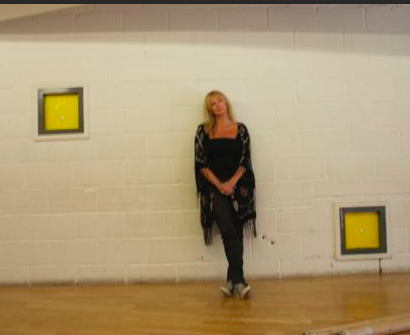
by Bel | Dec 15, 2015 | acting classes, acting classes london, audition classes, audition doctor, auditions, tilly blackwood
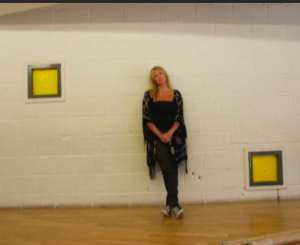 In an interview in The Stage, Charles Edwards said: “It’s a very tangible thing, actually, putting together a performance. It’s twisting and rearranging and changing. One feels one is creating something whole, working on a performance.”
In an interview in The Stage, Charles Edwards said: “It’s a very tangible thing, actually, putting together a performance. It’s twisting and rearranging and changing. One feels one is creating something whole, working on a performance.”
This is something that Audition Doctor’s students have found during the course of their sessions; frequent attendance results in the building up not just of their character, but also of their craft.
Kevin Spacey recently commented: “The craft of acting is to step into someone else’s shoes, someone else’s ideas; to look at something in a mirror and not see ourselves and not feel weird but feel free.”
This ability to be inhibited and open to play is something, like everything else, that has to be honed. Audition Doctor has helped many actors in this regard. With many parts, there is sometimes a difficulty in making them your own – particularly if it has been seen to be definitively immortalised by another actor.
Janet McTeer spoke about making the part of the Marquise de Merteuil (a role that has been played by Glenn Close and Laura Linney) in Les Liaisons Dangereuses her own:
“There’s a process in rehearsal where you have to let go of that and ask what you can do with the part.”
Finding the essence of your unique take on a character is something that Audition Doctor has proved indispensable at doing. Much like the rehearsal process, a character emerges through trial and error.
Charles Edwards stated: “The most exciting part of rehearsals is when you start to feel what the performance might be, and that pushes you into directions you hadn’t thought about before.
Students frequently comment on how they find themselves in unexpected creative avenues and how excited they feel when their limits are surmounted. This is why even when students are not auditioning for a specific role or medium, they still attend their weekly sessions because the work they undertake at Audition Doctor is invaluable.
McTeer said: “In my heart of hearts I love theatre. It’s the joy and terror of putting a play on, the creativity of it,” she said. “It is infinitely harder than film and television and more tiring. Your performance is heightened in the way it isn’t with film.”
Students are encouraged to pick speeches with heft. As Charles Edwards said: “I like plays with sweep. I like watching something expansive, emotionally as much as narratively. I like characters that go from one extreme to another.”
Because students work on parts such as these frequently during sessions, when professional auditions for challenging roles come around, they are much better prepared.
McTeer said: “The people I respected and wanted to be [when I was young] are still the people I respect and want to be. Lindsay Duncan, Harriet Walter, Juliet Stevenson, Maggie Smith, Judi Dench, Helen Mirren, who all did amazing theatre and were just incredibly good at what they did. That’s what I wanted to be. The only way to do that is to be as good as you possibly can be in as varied roles as possible.”
Audition Doctor affords actors this possibility.

by Bel | Dec 2, 2015 | acting classes, acting classes london, audition classes, audition doctor, auditions, classes for acting, tilly blackwood
 In the Guardian this week, David Morrissey was interviewed about the process of preparing for his role in Hangmen.
In the Guardian this week, David Morrissey was interviewed about the process of preparing for his role in Hangmen.
Far from worrying about the potentially incendiary nature of the play, Morrissey described the anxiety he felt with regards to his own performance.
“All the way through rehearsal I kept thinking, how am I going to do this justice?” All my worries were personal. It has been a while since I have been in the theatre” – he played Macbeth at Liverpool’s Everyman theatre in 2011 – “and even longer since I’ve done comedy in theatre. So my worries were all about that. I never had any about how the play would be received.”
The return from a break from a particular medium is why many professional actors go to Audition Doctor. Nothing prepares you for a role other than the doing of it. The space that Audition Doctor offers is a unique place where actors feel the freedom to research, rehearse and experiment under professional guidance.
Speaking of Hangmen, Morrissey commented: “From the first two pages I thought, I want to do this. Sometimes when you read a script you are slightly outside it, thinking technically about how you will do this and that. But very quickly I forgot that I had even been offered the role. I just read it as a story. And it was wonderful.”
The brilliance of Audition Doctor lies in guiding students towards plays such as these, whilst also teaching the technical finesse that these kind of roles demand. Lessons are rigorous and it’s the students who combine private work with weekly sessions that see the quickest progress. This echoes Morrissey comment on his own way of working: “My instincts get more alive the more research I do.”
The actors who attend Audition Doctor sessions are those that take their career and craft seriously.
Students find that spending time and effort on continuously pushing themselves to be better is important and rewarding.
Morrissey said: “I went through a stage as a younger actor of feeling that what I did wasn’t worth that much, that it was frivolous and unimportant,” he says. “I don’t feel that now. I really believe in the power stories have to illuminate and the need of a collective audience to witness things together. Now I am getting older I feel it is a very important job…”
This echoes what Mark Rylance said in a recent interview: “I think that is all we want as human beings. That is why there are religions and philosophies. Without stories, life would be overwhelming.”
As actors, communicating those stories effectively requires work, commitment and courage.
Fisayo Akinde said in BAFTA’s Acting Guru series: “You have to go for it, I think. Bold choices are always the best choices even if they don’t work, because then you’re memorable and you’re remembered for being brave.”
Audition Doctor sessions make you braver and better professionally, which is explains why students keep coming back.

by Bel | Nov 24, 2015 | acting classes, acting classes london, audition classes, audition doctor, classes for acting, tilly blackwood
This we ek, Mark Rylance spoke about the trap that many actors, including himself, fall into when acting Shakespeare.
ek, Mark Rylance spoke about the trap that many actors, including himself, fall into when acting Shakespeare.
“[The acting ] is too slow. It’s too reverent. It is like taking a rap song in 400 years from now that we think is really wonderful and deciding it should be said slowly so all the lovers of rap can hear every word. To take a song like Honky Tonk Woman and study it for its literature is fair enough, but if you are going to revere it as literature, you are doing a disservice to Mick Jagger and Keith Richards, who would like it to be revered as a great rock’n’roll song. That is what I have always felt about Shakespeare. By all means revere him and love him, but revere him in the way he would want to be revered – as a playwright.”
However, saying the lines quicker is not an excuse for under preparing and not understanding the text. If anything, as Audition Doctor students can attest, it requires a commitment to an even deeper comprehension of the play as well as heightened verbal dexterity. Students have found that regular preparation at Audition Doctor gives them structure and they are able to see results quicker under Tilly’s guidance.
Even experienced actors such as Geoffrey Rush, who is rehearsing for King Lear, acknowledges that with Shakespeare: “I had to do my homework. I knew from when I did A Funny Thing Happened on the Way to the Forum that it took me a long time to cram in Stephen Sondheim’s very fast patter lyrics at a comfort-zone level. So I started working on Lear early, absorbing it, talking around it, finding out about the history.”
Audition Doctor sessions take a lot of the pain out of the homework through targeting specific aspects of the speech students find difficult and practically solving them in the doing of it. Through this kind of experimentation, students find that they end up discovering their own version of the character.
Rush said: “If you look at Hamlet – not that I’ve played him myself – each actor has to find their own Hamlet. Certainly with Lear, you have to credibly enter an acceptable zone of seeming like an octogenarian. And you can reference behaviours and family members to get there but, ultimately, it’s got to be your own.”
Making a Shakespeare part your own is what Audition Doctor pushes each student to do. Tilly also makes certain that they enter every audition with confidence – both from knowing that they have an original take on a role and also from being ready to make bold choices and not being too precious. The readiness to abandon their performance altogether in favour of trying something new if the panel asks is a quality that Audition Doctor students possess.
Fisayo Akinade, who recently appeared in Russell T. Davies’ Cucumber, commented: “In a weird way, you don’t act the same way in an audition as you do when you get to set. It’s a slightly alien environment. A lot of the technique to an audition is understanding that it’s a very different thing to a performance.”
Audition Doctor gives students this understanding and Akinade also stated that in auditions, “you’ve got to be the better you”, which is absolutely what Audition Doctor enables each one of her students to be.
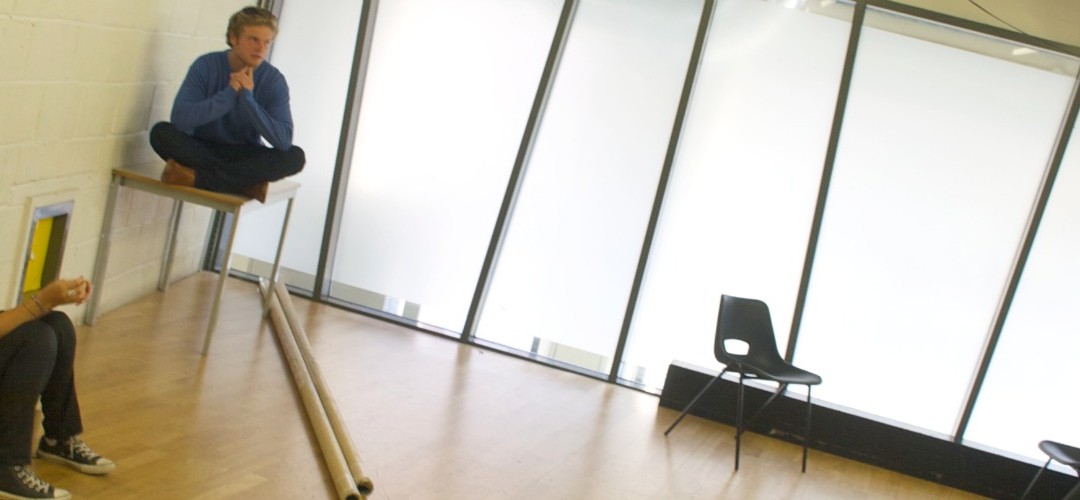
by Bel | Nov 18, 2015 | acting classes, acting classes london, audition classes, audition doctor, auditions, classes for acting, tilly blackwood
 Simon Russell Beale stated in an article for the Guardian entitled “Actors’ advice to actors”: “The actor’s primary responsibility is to make the text understandable at first hearing. That’s quite a big thing, and quite difficult, especially if it’s a fairly complicated text. Know the rules about verse-speaking. After that, I don’t care whether you break those rules – just make me understand what you’re saying, the first time you say it.”
Simon Russell Beale stated in an article for the Guardian entitled “Actors’ advice to actors”: “The actor’s primary responsibility is to make the text understandable at first hearing. That’s quite a big thing, and quite difficult, especially if it’s a fairly complicated text. Know the rules about verse-speaking. After that, I don’t care whether you break those rules – just make me understand what you’re saying, the first time you say it.”
Students have come to rely on regular Audition Doctor sessions because the rules of verse-speaking can be found in countless books on Shakespeare and acting, however, it is putting them into practice that is challenging.
Andrew Scott said in this week’s Guardian Chat: “If you can’t remember the line it’s because you don’t want to say the line. When you work out what it means, you’ll be able to remember it.”
Students who benefit most are those that attend Audition Doctor sessions consistently because there is a process to unlocking a character and a text that takes persistence and routine, which can only be partially achieved in a one-off lesson.
Tilly guides her students, especially those applying to drama school, through every stage of the process – although this does not preclude an inordinate amount of work on their behalf. Picking a speech and character that will raise your game as an actor requires patience and time.
Denise Gough, who recently played Emma in People, Places and Things, said: “I had a profound moment on stage the other night, I was on stage with Nathaniel who plays Mark, and I realised that my storyline does not depend on him, and it meant we could play, because you’re not having to grab on to the male storyline to make your woman live. She lives anyway.”
Andrew Scott said: “The endeavour is everything.” In the rehearsing, researching and performing of a piece, Audition Doctor’s students find out a huge amount about their acting – their strengths, weaknesses and the kind of parts they can see themselves playing in the profession.
Moreover, those that come to Audition Doctor also comment on how much easier it becomes to take notes and act on them. Malleability and versatility are qualities highly prized in actors and are what drama schools are looking for in a potential student.
In the Guardian, Anthony Sher advised fellow actors: “Take notes not just graciously, but gratefully. Don’t argue back. You get actors who, as soon as a director starts to give a note, will say, “Ah, what I was trying to do …” What you were trying to do is irrelevant – just listen to what the director, if it’s a good director, is saying, because it’s worth gold. I love notes; I thrive on them. I can’t wait for someone to help me go further than I can by myself.”
Put simply, this is Audition Doctor’s USP.
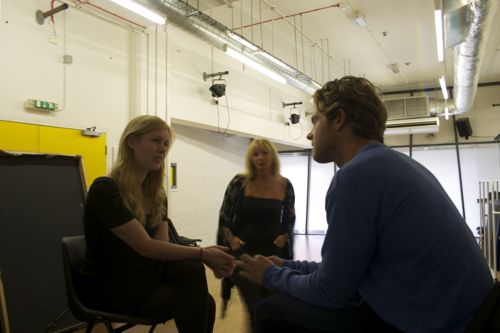
by Bel | Nov 10, 2015 | acting classes, acting classes london, audition classes, audition doctor, auditions, classes for acting, tilly blackwood
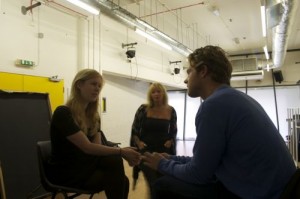 Julian Fellowes recently caused a debate when explaining why he had rewritten vast swathes of his film of Romeo and Juliet: “To see the original in its absolutely unchanged form, you require a kind of Shakespearean scholarship, and you need to understand the language and analyse it and so on,” he told the BBC in 2013. “I can do that because I had a very expensive education; I went to Cambridge. Not everyone did that, and there are plenty of perfectly intelligent people out there who have not been trained in Shakespeare’s language choice.”
Julian Fellowes recently caused a debate when explaining why he had rewritten vast swathes of his film of Romeo and Juliet: “To see the original in its absolutely unchanged form, you require a kind of Shakespearean scholarship, and you need to understand the language and analyse it and so on,” he told the BBC in 2013. “I can do that because I had a very expensive education; I went to Cambridge. Not everyone did that, and there are plenty of perfectly intelligent people out there who have not been trained in Shakespeare’s language choice.”
Antony Sher, who will be playing King Lear next year, responded: “I am sorry, that is nonsense,” he said. “I never went to university but my job as a Shakespeare actor — and I have done a lot of them now — is to work hard on conveying the meaning. It’s not a university degree you need, it’s the craft of speaking Shakespeare, which we at the RSC work very hard at.”
As an actor, understanding the text is an undeniable necessity. However, comprehension as a result of intellectual analysis does not automatically mean you will be effective in portraying the heart and emotional heft of a speech. The craft of speaking Shakespeare and doing justice to the poetry of the language is difficult, which is the reason for Audition Doctor’s unabated popularity amongst both drama school applicants and professional actors.
An actor’s responsibility, particularly with Shakespeare, is to use the language as a means to communicate a character’s truth. Actors come to Audition Doctor for help with Shakespeare because, unsurprisingly, sometimes the language can feel more like a hindrance in portraying that as opposed to a help. The antiquated wording and ornate lyricism of it all can sometimes prompt actors to “act” or “perform”.
Director of the Television Workshop, Ian Smith spoke about performance in an article for Ideastap:
“In my vocabulary, performing is something that gets in the way of truth. As an actor, your bullshit detector should go off. You should know if something doesn’t feel right – but you then have to work out where and why it didn’t feel right. What made you hit the wrong notes. Why do you say something the way you say it, when you say it? Why does that thought occur to you? How do you bridge that change from one thought to the next thought?”
At Audition Doctor, these are the kind of questions that every student explores through their work.
Smith went onto say: “If a cat walks across the stage – a real cat – of course it upstages everybody. The whole audience is looking at the cat, because you’re looking at real life; at something totally unpredictable. That’s an element to Samantha Morton, Jack O’Connell, Vicky McClure; you get the sense that you’re watching something unpredictable but absolutely tuned in to the moment.”
Students who attend sessions regularly notice that their ability to be spontaneous on the line and to react honestly is greatly strengthened, which is something that cannot be achieved by having an expensive education or a university degree.

by Bel | Nov 3, 2015 | acting classes, acting classes london, audition classes, audition doctor, auditions, classes for acting, tilly blackwood
 Geoffrey Colman, head of acting at Central, wrote an article on the danger of aspiring actors disregarding the merits of professional training. “The cult of the untrained reigns supreme. Why wait three years, or even one – why make the effort to be trained at all?”
Geoffrey Colman, head of acting at Central, wrote an article on the danger of aspiring actors disregarding the merits of professional training. “The cult of the untrained reigns supreme. Why wait three years, or even one – why make the effort to be trained at all?”
Many young actors, who routinely see the untrained catapulted into the spotlight, understandably feel that training is not a prerequisite to forging a career. However, the longevity of such a career is usually short. Colman encourages vocational training as a way of committing yourself to “a craft that has bestowed such meaning and continuity” and raging against the prevailing view that “all is instant, all is now.”
“…the cultivation of knowledge is worth the risk; worth pursuing for nothing more than its own sake. The vocation of knowledge and the vocation of training are old terms that identify a set of standards and assumptions not immediately associated with the click-and-download generation of today – and therefore are terms and ideals that we must fight for and protect.”
Colman also talks about the idea of surrendering and this is what Audition Doctor sessions encourage students to do. The act of surrendering is linked to a willingness to be open and vulnerable. Those that attend Audition Doctor sessions quickly begin to realise that their progress is dependent on how much of themselves they are willing to proffer.
This can feel exposing and requires a kind of bravery. However, the reason why Audition Doctor continues to be in such popular demand is because the sessions never make you feel unsafe. Any vulnerability is channeled into the role and it is this courage, which is cultivated in the sessions, that breeds work.
In a recent Guardian article, Alex Jennings stated: “I love to keep working,” he says, “but you have to wait and you have to be brave.”
This is the reason professional actors come to Audition Doctor between jobs. Many of them see waiting not as a static state, but as a time to push their craft further and to prepare them for roles which require more of themselves than they have previously ever given.
An Audition Doctor session is also the place to experiment and see the kind of roles that, as an actor, you would like to aim for. Ralph Fiennes recently commented on these roles, comparing them to “the gift of a garment”. “You go: ‘That’s perfect, I love that. That feels like that’s me.”
Those that come to Audition Doctor are serious about their careers and are focused solely on the betterment of their craft. Colman wrote of the subjectivity of what great acting is, however, he said that the one “common unifying quality, the greatness I hope to encounter with each new intake of students, is actually very simple – honest, full commitment to a craft that lies beyond the scope of apparent ambition or easy-won fame. In my long experience of training actors, I think that it is this single quality that distinguishes the real acting elite.”
The act of coming to Audition Doctor is an honest and full commitment to acting and a step to inching closer to the greatness that every actor hopes to reach.
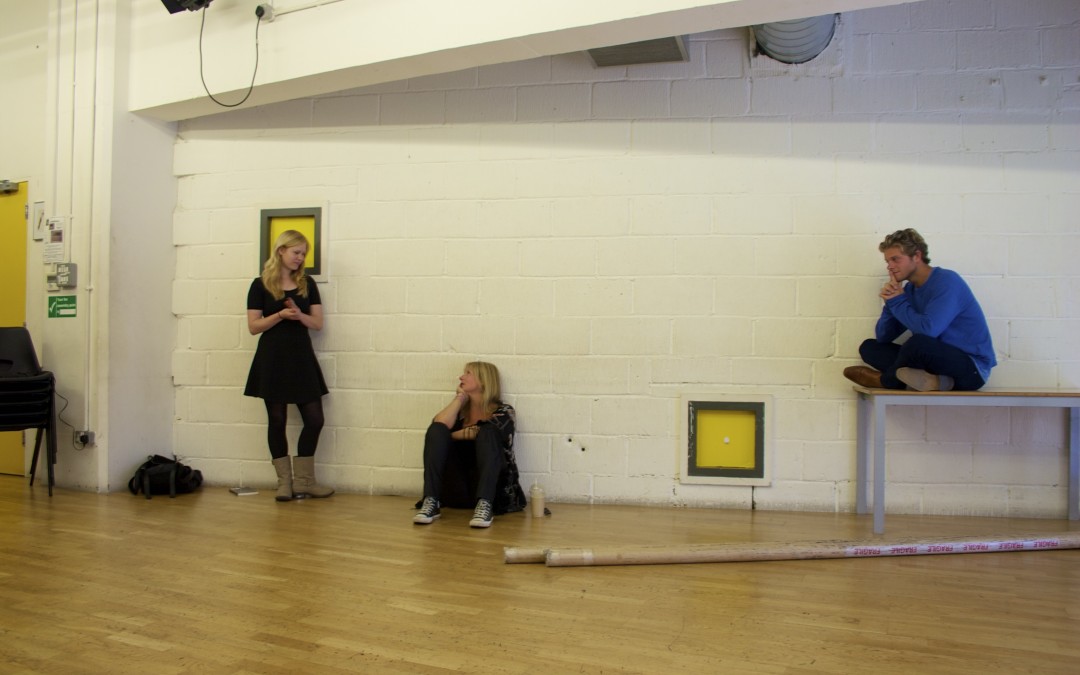
by Bel | Oct 27, 2015 | acting classes, acting classes london, audition classes, audition doctor, auditions, classes for acting, tilly blackwood
 Vulnerability is a quality highly prized by actors. Playing a role truthfully requires the ability to empathise and a willingness to unselfconsciously open yourself up, which inevitably exposes you to judgement. This can be daunting, especially for those who are applying to drama school and have had little experience of doing so.
Vulnerability is a quality highly prized by actors. Playing a role truthfully requires the ability to empathise and a willingness to unselfconsciously open yourself up, which inevitably exposes you to judgement. This can be daunting, especially for those who are applying to drama school and have had little experience of doing so.
In The Stage, Mark Rylance said: “In my experience, in rehearsal rooms and looking at plays, this is the point of the mask of theatre, as Joan Littlewood once said. It enables you to share something really vulnerable. If you’re not using the mask of pretending to be someone else to share something vulnerable, what’s the point of the mask? This is where we can look at things that might really overwhelm us in life.”
Audition Doctor sessions are in demand because students are encouraged to be vulnerable and it’s rare to find an environment where you feel at ease enough to overstep your own limits.
Rylance spoke about his tenure at the Globe and about why some shows worked some nights and others not: “I realised it was something to do with being honest. You’ve got to delve for something honest and real that at least seems spontaneous, and hopefully is spontaneous, to capture them.”
Students who come to Audition Doctor sessions can attest that honesty and spontaneity are the two qualities – alongside vulnerability – that are fostered.
Aside from drama school students, professional actors make up a substantial proportion of Audition Doctor’s students. Of these, many are actors who have done a lot of film and TV work and who want to re-engage with theatre.
Rylance said: “[In film], the actor is not the storyteller; you just need to be as real and there as the chairs, and they’ll edit it. I’m going to be doing a lot of fronting for the Spielberg film soon – hours and hours of selling it, and I can talk about the process of enjoying playing it, but I’ve not even seen it yet. And when I do see it, it is no more mine than [it is] the camera operators or the grips.” In the theatre, by contrast, it is up to the actor to claim ownership.”
In a profession which is famed for its instability, attending sessions such as Audition Doctor is also an act of taking control of your career.
Rylance went onto talk about the difficulties of keeping lines you’ve said countless times before as original and fresh as the first time you spoke them: “Repetition is a big problem in the theatre – in my time, there was no training for it, and it is hard to give you the experience of doing more than five shows in a row at drama school. But there are things you can do to keep refreshing yourself, just simple things like coming out of your head and into your senses. If you’re onstage and stuck, come out of your mind that is causing you difficulties and think about what it smells like, looks like and sounds like, and get into the present moment.”
Getting out of your head is what Audition Doctor excels at and with playwrights such as Shakespeare, it’s easy to get caught up on the difficulties of the language rather than playing the emotion that the language is seeking to convey. Audition Doctor refreshes how you approach a text and liberates you from any obstacles that are preventing you from being vulnerable and genuine in your performance.

by Bel | Oct 21, 2015 | acting classes london, audition classes, audition doctor, auditions, classes for acting, tilly blackwood
 Brian Cox, Bill Paterson and Mark Thomson were interviewed in the Independent about their recent production of Waiting for Godot at the Edinburgh Lyceum.
Brian Cox, Bill Paterson and Mark Thomson were interviewed in the Independent about their recent production of Waiting for Godot at the Edinburgh Lyceum.
Paterson said: “Even if you’ve seen Beckett, if you’ve seen Godot, you underestimate what it needs. You tend to think it’s incredibly simple staging, just two guys, but it’s much more complex – probably than what we anticipated, I think it’s fair to say. But you can see how people have it as part of their repertoire. Once you get these parts under your belt you could live with them forever. They’re like arias, the characters. They’re operatic, almost.”
Shakespeare’s work, much like Beckett’s, is part of a national repertoire. The requisite Shakespeare monologues that drama school applicants have to perform have been seen countless times; it’s easy to fall into the trap of acting it the way you assume they should be done, rather than treating them as fresh texts that are worthy of real emotional excavation and experimentation. Actors have found Audition Doctor sessions helpful in that they break down the intimidating barrier that some actors understandably feel prevents them from really digging deep and making bold choices with the text.
Thomson went onto say about Waiting for Godot: “It takes away a lot of your familiar anchors. It denies you, it takes away set, relationships, character. Every line, there’s a choice. That’s when you realise the detail of thinking… you have a great mind that’s being very clever and quixotic, and you trust him. It’s like tuning into a bandwidth, you feel about and then you get it and you jump onto it. I think anyone taking on Beckett as an actor, it’s an act of faith and bravery.”
At Audition Doctor, the emphasis is always on choice and being unafraid to make vulnerable decisions if it serves the character’s motivations. Tuning into any writer or character’s bandwidth, however, takes consistent rehearsal and preparation. Those who succeed in gaining strides in understanding their character’s world and psychological landscape are those that work regularly at Audition Doctor. The consistent graft that is undertaken at Audition Doctor often leads to breakthroughs – both in terms of understanding the character and landing professional jobs.
Cox stated of Godot: “…it’s exhausting. It’s a hard play, there’s no easy way to chart it. There are bits in it which are effortlessly magnificent, and there are bits where you have to work your socks off to pull the focus of it and keep the engine of it going. It’s scarily simple, that’s the problem with it, and you have to trust that.”
Audition Doctor’s students have found that keeping the engine going and playing the truth of the scene becomes so much easier with practice.
Although he was speaking about dance, Matthew Bourne summed up the importance of coming back to “revisiting past work and improving it” in The Stage this week:
“A lot of choreographers like to create something then they don’t want to do it again. But for me you can always do better and find new ways to be creative with a piece – there’s no doubt that they’ve always got better when they come back. Every one has had a very big overhaul when they come back for the first or second time.”
Sessions with Tilly are about finding ways to be better and to push each actor’s creative limitations further, which is why most students come back to Audition Doctor frequently.

 At Audition Doctor, Tilly always encourages students to spend a considerable amount of time in search of the speech that they would like to work on.
At Audition Doctor, Tilly always encourages students to spend a considerable amount of time in search of the speech that they would like to work on.


















